A Survey of Quality Leaders: Reflections from One Year of COVID
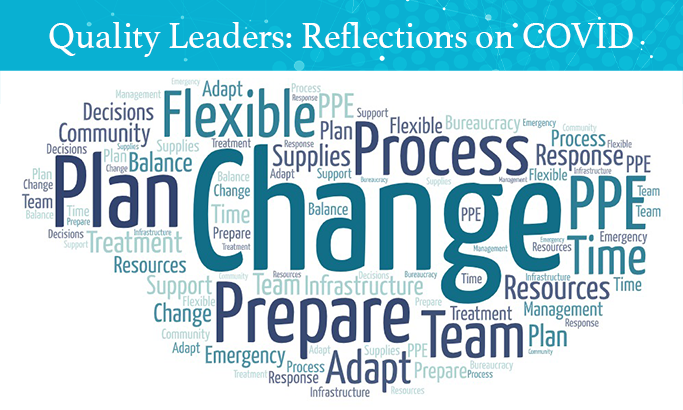
We know this year has been hard for everyone, especially our healthcare workers. We asked 150 quality leaders for their reflections on the last year, their responses are deeply moving.Physician burnout has been pretty well-documented during this COVID-19 pandemic. We all recognize the complexity that has surrounded the previous 12 months and how it has worn our clinicians to the bone.
At Medisolv we are focused on our Quality department heroes. These are the people who ensure our patients receive the highest quality of care. We wanted to know, how did the pandemic affect our quality leaders?
So, we sent out a survey to our quality leaders and asked them a series of questions around this topic. The responses from over 150 quality leaders are below.
It’s been a year since everything was shut down and our world was turned upside down. We are honored to be associated with these incredible quality leaders. It’s been hard and we celebrate the determination and perseverance you’ve shown. Thank you for your work.
On a scale of 1 to 5, how has COVID affected the day-to-day tasks of your job? (1 being not much change, 5 being extreme change)
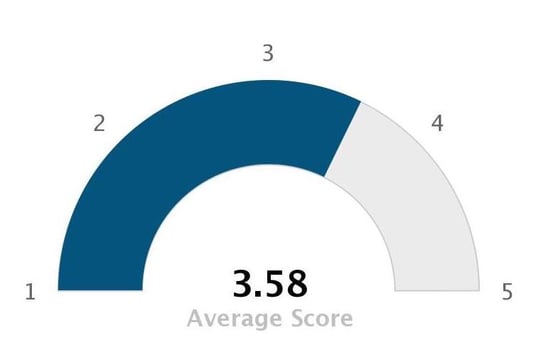
On a scale of 1 to 5 how would you rate your process for reporting hospital patient COVID data to federal, state and internal parties? (1 being a bad process, 5 being an excellent process)
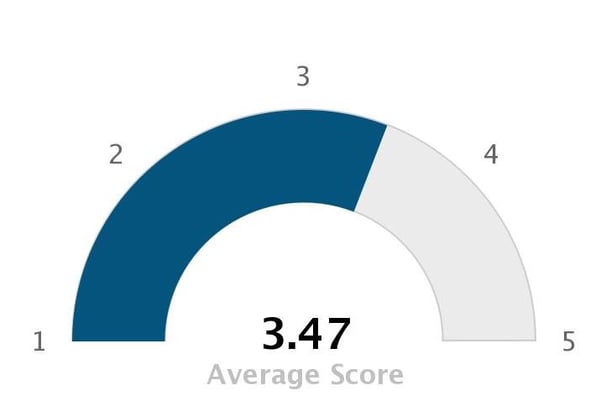
Would you agree with this statement? "My hospital has a much better handle on how to treat and manage COVID as compared to a year ago."
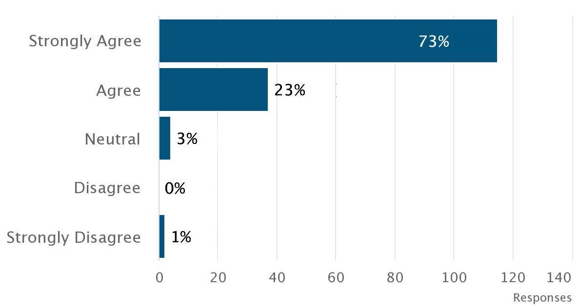
Did your hospital experience furloughs due to COVID?
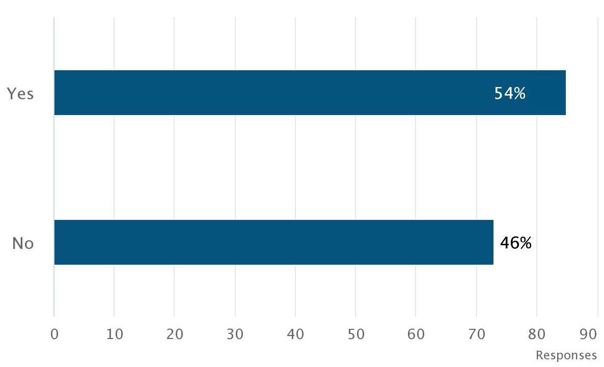
Did you lose employees to burn out due to COVID?
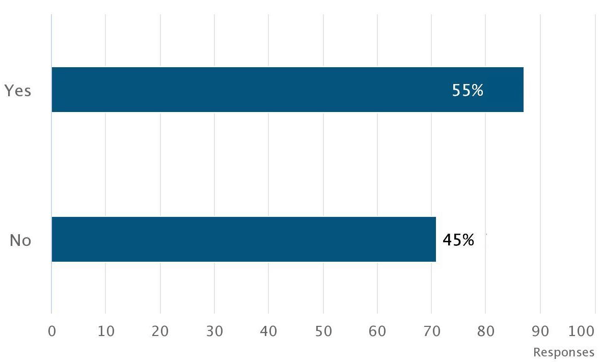
Would you agree with this statement? “I feel positive about the future outlook as it relates to the COVID pandemic”
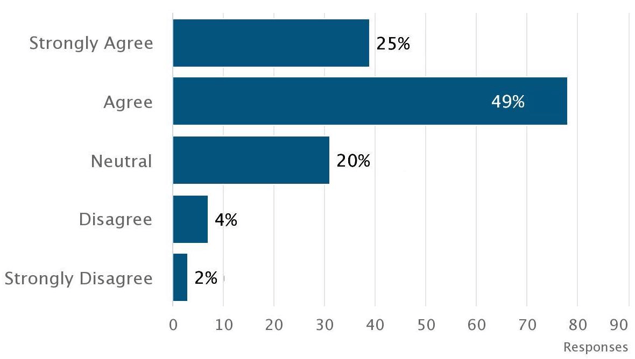
Quality leaders and their reflections
I have to say, I was pretty floored by the next two questions. You can’t believe how many heartfelt responses we received. I’ll be honest, there’s some heavy stuff in here.
There were a couple of themes that emerged.
1. Quality leaders were asked to do additional jobs outside of the scope of their normal role. They were highly involved in the COVID data discussions and population counting and reporting.
2 . Burn out is not just for physicians. A lot of quality leaders worked much more than a 40-hour work week.
3. Many of these quality leaders focused on teamwork. They were very proud of what their teams were able to accomplish under enormous pressure and change.
4. Adapting to remote work was challenging. Some found it good, others found it difficult.
What would you say your biggest learning is from the last 12 months as it relates to COVID?
I created a word cloud with the most common words that appeared on these reflection questions. Then I pulled out some of the most poignant reflections.
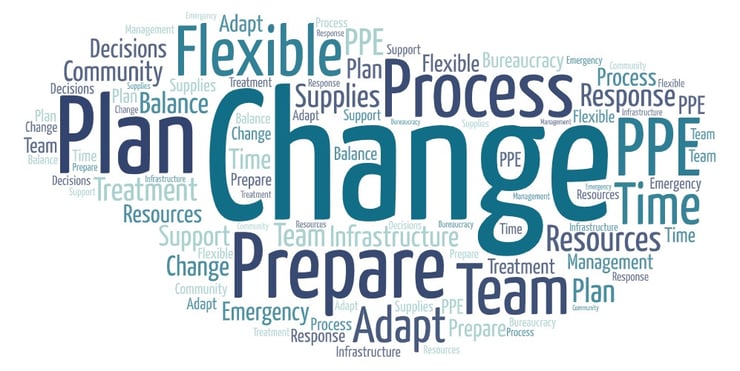
A sampling of responses
- Finding the right balance between COVID-19 response and normal operations. As the Pandemic extended beyond a short time it became necessary to find that balance to maintain quality in the areas we have always worked on and the new requirements for care of COVID-19 patients.
- Local facilities were expecting guidance and help from the state and federal resources, however these resources were consumed in the larger cities and areas first hit by COVID, leaving the smaller facilities to fend for themselves. Local facilities must be prepared to address their issues and have the resources ready to do so for a period of time longer than the 3 or 10 days currently used.
- Resiliency is essential.
- There are many tasks and workflows that can be conducted/managed virtually, but effective quality improvement also requires on-site, in-person work.
- Those who are always looking for an excuse to defer accountability found an easy distraction in COVID. Those who show up to do the work regardless of circumstances found innovative ways to get things accomplished.
- This pandemic has affected every member of our organization on either a personal or professional level. It is important to be supportive of each other, adapt to the constantly changing environment/treatment protocols, and be proud of the lives saved.
- We had trained for disasters, but for the first time we saw how that training prepared us to work in unity when so much was at stake. From housekeeping, Information systems, Nursing, to Providers.... We worked together with one goal. It has been an honor to be in healthcare during this time.
- The pandemic caused us to leverage technology in ways we had previously only dabbled in (telehealth). We've had to constantly pivot against regulatory guidelines which can sometimes change daily but we have a strong sense of spirit and camaraderie.
- The pandemic forced healthcare organizations to look at the way new/revised processes are implemented in a different perspective. I've learned that process improvement (new or revisions to existing) can be expedited much more quickly than in the past, while still being effective, efficient, and safe.
- COVID really hit the smaller hospitals hard. In the smaller facilities, staff/management usually wear many "hats" or job titles and COVID added even more.
- Change is constant, keep learning.
- FLEXIBILITY FLEXIBILITY FLEXIBILITY! You must easily adapt and be early adopters of the new.
- Learning how to accept the unknown and prepare for the worst all while respecting patients, families and employees fears and anxieties.
- The cost of a non-unified infrastructure is monumental and could be even more-so with the next pandemic.
- That remote work is very possible and a great alternative to driving into the office.
I want to mention that the words politics, media and bureaucracy did appear more than just a few times. I didn’t include the specific quotes here because I didn’t want to make this a forum for political debate. But I did want to mention that a lot of our quality leaders felt politics impacted their job last year.
Some reflections were about politics preventing or poorly managing distribution or even overriding hospital management decisions. Others were about the media and either their hype causing hysteria or misinformation causing frustration within their organization. And a lot of quality leaders mentioned the burden of reporting all that COVID data to state and federal governments.
Finally, here was the last question we asked.
Thinking back over the last year, please provide a short reflection on your year.
![Reflection_WordCloud[1]](https://blog.medisolv.com/hs-fs/hubfs/Reflection_WordCloud%5B1%5D.png?width=708&name=Reflection_WordCloud%5B1%5D.png)
A sampling of responses
- We were caught unprepared by the pandemic in spite of many warning signs.
- Busy, busy, busy and stressful. Depressing for clinical staff who feel they don't have much control in effecting positive outcomes for these patients.
- Healthcare teams have employed immense collaboration to understand a brand-new pathophysiology, implement ever-changing new guidelines, sort science from fiction, work in extreme conditions, and educate persons who doubted healthcare professionals in a manner never before seen.
- Work intensive. Long days, weeks, months. Working a lot of extra hours which continues with required reporting 7 days a week.
- The year has been incredibly busy. We have all been asked to work extra hours and have been doing many different things outside of our normal scope.
- I'm a very stable person, emotionally, mentally, and physically. This year's stress, uncertainly, isolation, disappointment, and heartbreak have jolted even the steadiest of souls. Despite, or maybe because of this, I have grown more as a spouse, parent, and friend, and become more patient, more appreciative, and more diligent in priority setting.
- I take more time, before reacting, to think about what's happening and how to respond. We all have the "fight or flight" built into our DNA but learning how to channel it for positive outcomes is key for me. I have learned to slow down and for the most part that has been a good thing.
- Hard, isolated, fearful at times and sad from so much loss. All the while you are trying to stay strong for your medical team and provide as much support as you can even in a non-clinical role.
- Toughest in my 34 years as a nurse. People pulled together as a team better than I've ever seen though.
- True character always surfaces in the face of adversity.
- It has been the toughest year of my 20+ years of nursing. I wonder if I am cut out for the career anymore.
- It has been a painfully difficult, stressful and emotionally draining year. But I am humbled by the amount that we have learned about doing more with less, being nimble and able to pivot rapidly and still meet the needs of the patients that we serve.
- As a quality professional it has not only confirmed but magnified our weaknesses AND strengths as a provider of acute care services. I have never been more frustrated and prouder of our performance.
- With COVID taking the lead, maintaining education on core measures has been challenging.
- This year has been a time of reflection, learning and compassion. Being redeployed back to the bedside to help with the surge in our hospital put my perspectives into order.
- Loneliness, isolation and being separated from family.
- The pain and the heartache and the fear of the patients and their families was the worst ever. Our staff became completely undone by all the death and the loneliness and the heartache. There was a lot of hard work and perseverance and now we are hopefully coming through on the other end of this, wiser and better prepared should there ever be another.
- Change, change, change. Teamwork, teamwork, teamwork.
- Tiring, overwhelming, blessed by good people doing a great job every day.
- It was a reminder that human beings are not omniscient. We shouldn't speak as though current studies tell the whole story. But, neither should we be complacent - a lot of incredible work was accomplished in a short time, that saved lives. We need to give each other grace and continue to strive to do our best.
- Last year was one of the toughest of my life, personally and professionally. There was a lot of sadness, grief, anger and chaos shared across news and social media. But there were also unbelievable acts of kindness, compassion, innovation, support and generosity - and seeing these things provided hope and inspiration when things got very hard. We are not through with this yet, but we've learned a tremendous amount and I am hopeful that we will use what we've learned to improve infrastructure, logistics, communication and policy for the future.
- My heart goes out to our physicians, nurses, and all front-line healthcare providers. Their dedication and personal sacrifices made for others this year will have a profound effect on patients and their families for years to come. We can never repay them for all they do, but hope they understand the deep appreciation and respect we all have for each of them.
Wow. These reflections made me cry. I wish I could ask every American to read all of your responses to these last two questions. Quality leaders have done so much for us and sacrificed more than most. Our most sincere and heartfelt gratitude to you. Thank you for sharing your reflections.
Stay Up-to-Date in All Things QualityMedisolv Can Help This is a big year for Quality. Medisolv can help you along the way. Along with award-winning software you receive a consultant that helps you with all of your technical and clinical needs.
Here are some resources that can help: Blog: "A COVID Mortality Analysis of 547 Medisolv Hospitals Over Nine Months" |



.png?width=352&name=BlogImage_State%20of%20IQROQR%20Survey%20(4).png)

Comments